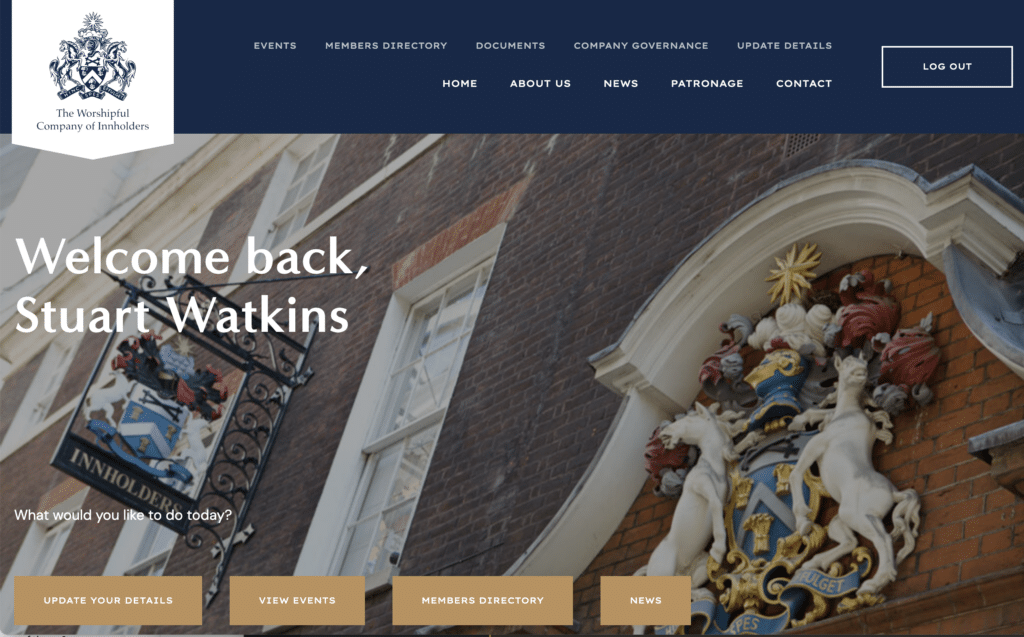

Devstars
Are you planning to build a website but don’t know where to start? Understanding the costs involved is vital for making informed decisions. In this article, we will demystify website costs and provide you a website cost calculator and the knowledge you need to navigate this often confusing landscape.
Whether you’re a small business owner, entrepreneur, or freelancer, knowing what to expect can save you time, money, and frustration. We’ll break down the different components of your new website costs, including domain registration, hosting fees, design and development, maintenance, and ongoing expenses.

By the end of this article, you’ll clearly understand what to budget for and what to look out for when working with website service providers. We’ll also share tips to help you optimise your spending and get the most value for your money.
Don’t let the complexities of website costs intimidate you. With the right information at your disposal, business owners can confidently take the next steps in creating their online presence. Let’s jump in and demystify website costs together.
You need a good specification to provide an accurate website cost. The more complex the website is, the more in-depth the specification needs. But who will write the spec? We have our in-house spec writers who can bridge the gap and bring clarity between clients and production.
Here are some of the factors that should be looked at:
Building a website involves various factors that can impact the overall cost. Understanding these factors will help you make informed decisions and plan your budget effectively. Web design agencies will use the following factors to calculate the cost of your website.
As the saying goes, “Fail to plan, plan to fail”. We believe that spending time at the beginning of a project, running client workshops, and doing design sprints and prototypes pays dividends. In these early stages, web designers can rapidly present ideas that are easy to change and with low-cost overheads.
For e-commerce websites, getting key user journeys in front of potential customers can help highlight issues or potential wins early on.
Ever had your hair cut by a junior at a salon? Understanding who will be working on your project and the experience level is good. You could end up paying half the price for someone who takes three times as long (and not as well). Programmers and website designers come in all levels, and don’t underestimate the value of a great project manager.
The complexity and functionality of your website play a significant role in determining its cost. A simple brochure with a few pages will be less expensive than an e-commerce website with a shopping cart, payment gateways, and inventory management.
Additionally, features like contact forms, live chat, galleries, animations, and custom database integration will add to the complexity and cost. It’s essential to clearly define your website’s functionality requirements before starting the development process.
The level of customisation and design you desire for your website will also impact the cost. Using pre-designed templates or themes can be cost-effective, while custom designs tailored to your brand can be more expensive.
Custom designs require the expertise of a professional web designer who will create a unique look and feel for your website. Balancing customisation with your budget is crucial to ensure your website reflects your brand identity without breaking the bank.
The choice of a content management system (CMS) can affect website costs. Popular CMS platforms like WordPress and Drupal are open-source and free to use. However, you may need to invest in premium themes, plugins, or extensions to add specific functionality.
On the other hand, some CMS platforms charge licensing fees or have subscription-based pricing models. It’s essential to consider the long-term costs associated with your chosen CMS.
Websites come in various forms, each catering to different needs and objectives. Understanding the types of websites and their associated costs will help you determine what suits your requirements best.
Brochure websites are simple, informative websites that act as online business brochures. They typically consist of a few pages, providing essential information about the company, its products or services, and contact details.
The cost of a brochure website will depend on the number of pages, the level of design customisation, and any additional features required. A basic brochure website can cost anywhere from £500 to £7,000.
One-page and landing-page sites might be the best option for small businesses. However, we offer our clients a bespoke landing page with a free blog/article area for better search engine optimization. Aerobic Technologies is a good example of a One-page-plus site.

Ecommerce websites are designed for selling products or services online. An online store requires features like product listings, shopping carts, secure payment gateways, and inventory management systems.
The cost of an e-commerce website can vary significantly based on the number of products, the complexity of the shopping cart system, and any unique requirements. A small e-commerce website can start from £3,000 and go up to tens of thousands of pounds for larger, more customised solutions.
Look at our WordPress Multi-site and Multilingual E-commerce site for Molton Brown that utilises multiple warehouses across the UAE and Saudi Arabia.
Membership or subscription websites require users to sign up and pay for access to exclusive content, services, or products. These websites often have recurring billing systems and user management features.
The cost of a membership website will depend on the complexity of the membership system, the number of subscription tiers, and any additional features required. Expect to invest anywhere from £5,000 to £30,000 for a functional membership website.
Our members site for the Worshipful Company of Innholders provides Linkedin like features for members to meet and update interests and visibility.

Web applications are complex websites that provide advanced functionality and interactivity. They can include features like user dashboards, data management systems, third-party integrations, and real-time updates.
The cost of developing a web application can vary significantly based on the complexity and the number of features required. It’s common for web application development to start from £10,000 and go up to hundreds of thousands of dollars for large-scale, enterprise-level solutions.
When it comes to building a website, you have two main options: DIY or hiring a professional. Let’s explore the pros and cons of each approach to help you make an informed decision.
Pros
– Cost savings: DIY website builders like Wix, Squarespace, and WordPress.com offer affordable plans that allow you to create a website without hiring a professional.
– Flexibility: DIY platforms provide templates and drag-and-drop interfaces, making it easy to customise your website’s design and content.
– Learning opportunity: Building your website can be a valuable learning experience, equipping you with basic web design and development skills.
Cons
– Limited customisation: DIY platforms have limitations in terms of design flexibility and functionality. You may not be able to achieve the exact look and features you desire.
– Time-consuming: DIY website building requires time and effort to learn the platform, design the website, and troubleshoot any issues that may arise.
– Lack of expertise: Unless you have prior experience or knowledge in web design and development, your website may not have the professional touch of a trained expert.
Pros
– Customisation and expertise: Hiring a professional web designer and developer ensures that your website is tailored to your specific needs and reflects your brand identity.
– Time-saving: Professionals have the knowledge and experience to build your website efficiently, saving you time and allowing you to focus on other aspects of your business.
– Advanced functionality: Professionals can implement complex features and integrations to enhance your website’s functionality and user experience.
Cons
– Higher cost: Hiring professionals comes with a higher price tag compared to DIY options. However, the investment can often result in a more polished and effective website.
– Dependence on external resources: Working with professionals means relying on their availability and timeline, which may affect your project’s speed and flexibility.
– Communication challenges: Clear communication and understanding between you and the professionals are crucial for achieving the desired outcome. Miscommunication can lead to delays or unsatisfactory results.
Before diving into the specifics of website design and development, it’s essential to understand the foundational costs associated with domains and hosting.
A domain is your website’s address on the internet (e.g., www.yourbusiness.com). Registering a domain requires an annual fee, which can vary depending on the domain extension (.com, .org, .net, etc.) and its popularity.
On average, domain registration can cost anywhere from £10 to £50 per year. It’s recommended to choose a domain name that aligns with your brand and is easy to remember.
Website hosting is the service that enables your website to be accessible on the internet. Hosting providers store your website’s files and make them available to users when they visit your website.
The cost of hosting can vary depending on factors like server resources, storage space, bandwidth, and the hosting provider. Shared hosting, which is more cost-effective for a basic website, can start from £5 to £20 per month. On the other hand, dedicated hosting or cloud hosting can cost upwards of £100 per month.
When choosing a hosting provider, consider factors like reliability, customer support, security measures, and scalability to ensure your website performs optimally.
With hosting you pay for what you get. We use a number of platforms specifically designed for the sites they are hosting. Key features to look for:
It’s also worth considering using a service like Cloudflare that provides security, performance, and reliability. There is a free tier and many hosting companies will integrate with the platform.
The design of your website plays a crucial role in attracting and engaging visitors. When it comes to website design, you have two main options: using pre-designed templates or opting for a custom or bespoke design.
Website templates are pre-designed layouts that can be customised to fit your brand and content. They offer a cost-effective and time-efficient solution for creating a visually appealing website. Template costs can range from free to a few hundred dollars, depending on the platform and the level of customisation available. Popular template marketplaces include ThemeForest, TemplateMonster, and Elegant Themes. While templates provide a solid starting point, it’s important to consider the limitations in terms of design flexibility and uniqueness.
Website templates, though appealing for their affordability and efficiency, come with significant drawbacks. While they can be a budget-friendly option, they can also stifle your site’s individuality and creative freedom. The cost spectrum varies, but it’s essential to recognize the potential limitations.
Custom website designs are tailored specifically to your brand and requirements. Working with a professional website designer is the best way to create a unique and visually stunning website that stands out from the crowd.
Custom website design costs can vary significantly based on the designer’s expertise, the complexity of the design, and the number of revisions required. On average, expect to invest anywhere from £1500 to £10,000 for a custom website design.
A custom website design is all about creating a unique theme that perfectly aligns with your brand and your target audience. By adhering to best practices, we ensure that your users’ journeys are well-defined and tested while staying true to your brand guidelines.
Furthermore, a web design project offers enhanced security, faster loading times, lower maintenance, and superior search engine performance compared to free themes. This is because the theme’s source code is custom-made exclusively for your site, ensuring it’s not just open source, but uniquely yours.
Compelling content is essential for engaging visitors and converting them into customers. When budgeting for your website, it’s important to consider the costs associated with content creation, including copywriting, graphics, and multimedia.
Well-written and persuasive copy is crucial for effectively communicating your brand message and convincing visitors to take action. Hiring a professional copywriter ensures that your website’s content is engaging, optimised for search engines, and aligned with your brand tone.
Copywriting costs can vary depending on factors like the length of the content, the complexity of the subject matter, and the experience of the copywriter. On average, expect to pay anywhere from £100 to £500 per page for professional copywriting services.
Investing in quality copy is a worthwhile expense, as it can significantly impact your website’s conversion rates and overall success.
Graphics and images play a vital role in enhancing the visual appeal of your website. Whether it’s creating a logo, selecting stock photos, or designing custom illustrations, there are costs associated with acquiring or creating visual assets.
Stock photos can be purchased from various online marketplaces like Shutterstock, iStock, or Adobe Stock. Prices for stock photos can range from a few dollars to hundreds of dollars, depending on factors like image resolution and licensing.
There are some great tools for generating AI graphics and photos now. For example we wanted to create a teaser for a new Land Rover Defender specialist and produced a photo realistic image to brief using Midjourney.

If you require custom graphics or illustrations, working with a professional graphic designer will incur additional costs. Graphic design rates can vary depending on the complexity of the project, the designer’s expertise, and the number of revisions required.
Including multimedia elements like videos, animations, or interactive features can enhance your website’s user experience and engagement. However, adding multimedia elements can increase your website’s development and hosting costs.
If you plan to include videos, you may need to invest in video production services or purchase stock footage. Animation services and interactive features can also incur additional costs, as they require specialized skills and expertise.
Consider the impact of multimedia elements on your website’s performance and budget accordingly. Balancing visual appeal with loading times and overall user experience is crucial for a successful website.
Building a website is not a one-time investment. Regular maintenance and updates are essential for keeping your website secure, up-to-date, and functioning optimally. When budgeting for your website, it’s important to consider ongoing costs.
Ensuring the security of your website is crucial to protect it from cyber threats and data breaches. Investing in security measures like SSL certificates, firewalls, and regular backups can help safeguard your website and user data.
The cost of security measures can vary depending on the level of protection required and the hosting provider. On average, expect to spend around £100 to £500 per year for security and backup services.
Content management systems, plugins, and themes require regular updates to fix bugs, add new features, and improve performance. Ignoring updates can leave your website vulnerable to security issues and compatibility problems.
While most updates are free, some premium plugins or themes may come with annual licensing fees. It’s important to factor in the cost of keeping your website’s software up-to-date and ensuring compatibility between different components.
Regularly updating your website’s content is essential for keeping it fresh, relevant, and optimised for search engines. This may involve adding new pages, blog posts, or updating existing content.
If you don’t have the time or expertise to handle content updates yourself, hiring a professional content writer or SEO specialist can be a worthwhile investment. Content writing rates vary depending on factors like the length of the content, the level of research required, and the writer’s expertise.
Additionally, ongoing SEO efforts like keyword research, optimisation, and link building can help improve your website’s visibility in search engine results. Investing in SEO services or tools can contribute to long-term organic traffic growth.
When budgeting for your website, it’s important to be aware of potential hidden costs that may arise throughout the development and maintenance process. Here are a few common hidden costs to consider:
If your website requires integrations with external services or APIs, there may be additional costs associated with implementing and maintaining these integrations. Some APIs have usage-based pricing models, while others may require one-time or recurring fees.
Ensure you thoroughly research the costs and requirements of any third-party integrations to avoid unexpected expenses down the line.
With the increasing use of mobile devices, ensuring your website is responsive and optimised for mobile is crucial. However, implementing responsive design and mobile optimisation can add to the development costs.
Consider the additional time and effort required to make your website mobile-friendly and allocate the necessary budget accordingly.
As your business grows, your website may require additional features, functionality, or server resources. It’s important to plan for scalability and future growth to avoid unexpected costs when expanding your website.
Consider the scalability options provided by your chosen CMS and hosting provider, and evaluate the associated costs for upgrading or adding new features.
Business Website Price Range Guide for 2023
The choice of the team to build your website is closely tied to your budget. Here’s what you can typically expect at different price ranges:
1. Budget Range: £1,000 – £5,000
2. Budget Range: £5,000 – £10,000
3. Budget Range: £10,000 – £20,000
4. Budget Range: £20,000 – £50,000
For a more accurate estimation of your website project budget, consider the following factors:
Keep in mind that the involvement of your internal team can impact both the project’s cost and duration. Make informed decisions about who will contribute to the project and their roles. Additionally, be on the lookout for special pricing or discounts agencies offer, especially if you’re a non-profit organisation.
By considering these factors and utilizing our website cost calculator, you can gain a clearer understanding of your website project’s budget, ensuring a successful online presence in 2023.
Is there anything specific you would like to know more about or any questions you have regarding website costs or any related topic? I’m here to assist you further.
The main factors include planning, team members’ experience, website complexity and functionality, level of customisation and design, and the choice of Content Management System (CMS). These elements are considered by web design agencies to calculate the cost of your website.
DIY offers cost savings and flexibility but has limitations in customisation and can be time-consuming. Hiring a professional provides customisation, time-saving, and advanced functionality, but comes at a higher cost and may require dependence on external resources.
Ongoing costs include security and backups, software updates, and content updates. Security measures can cost between £100 to £500 per year. Software updates may come with annual licensing fees for premium plugins or themes. Content updates may require hiring a professional writer or SEO specialist.
Consider factors like reliability, customer support, security measures, and scalability. Features such as live and development areas for testing, daily backups, two-factor authentication, and speed are also important. Costs can range from £5 to £20 per month for shared hosting to upwards of £100 per month for dedicated or cloud hosting.
Send us a brief message outlining
your project and we’ll get back to
you asap to discuss your project
in more detail.